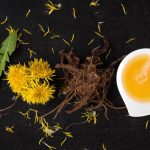
6 Herbal salves for your prepper medicine cabinet
Thursday, November 10, 2022 by Zoey Sky
http://www.naturalnewsherbs.com/2022-11-10-6-herbal-salves-for-prepper-medicine-cabinet.html
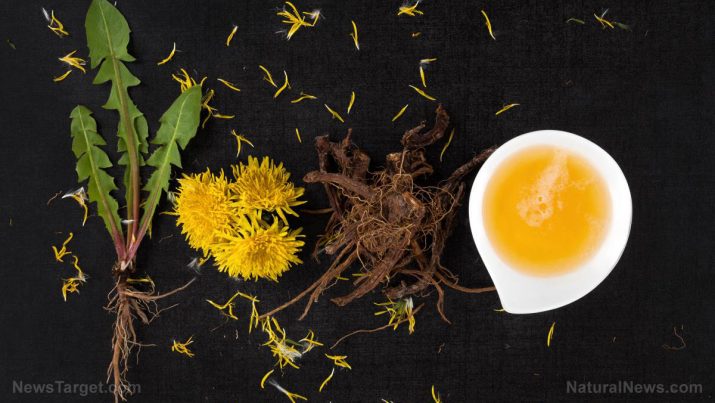
An herbal salve is a topical remedy made from medicinal herbs and other natural ingredients. Salves can be used to treat minor skin issues like burns, insect bites, scrapes, rashes and even eczema.
Salves are easy to make and inexpensive. You can also make them with a few household ingredients that you may already have. (h/t to UrbanSurvivalSite.com)
Herbal salves for skin issues
Herbal salves are ointments made from plant material. But unlike many store-bought ointments, an herbal salve is free from synthetic materials or chemicals.
The active ingredients in herbal salves help soothe the skin and promote regeneration. Many herbal salves are made with a base of olive oil or beeswax, which helps lock in moisture and protect your skin.
Some salves may include essential oils, which offer additional benefits depending on the specific oil that you use. For example, lavender oil is used in herbal salves because it has calming properties.
Herbal salves can be used as needed to ease various skin conditions. If you have a rash or other skin condition that is causing discomfort, apply a small amount of the salve to the affected area.
For best results, reapply the salve every few hours as needed. (Related: 20 Useful medicinal herbs to plant in your home garden.)
Carrier oils to use for an herbal salve
You can use herbal salves to relieve irritated skin, speed up the healing process of cuts and scrapes and moisturize dry skin. Salves can also help treat skin conditions like acne, eczema and psoriasis.
For herbal salves to be effective, you have to use the right oil base.
The oil you use will help determine the therapeutic properties of the salve. Note that different oils have different properties that can be beneficial for different skin conditions.
Apricot kernel oil
Apricot kernel oil is great for herbal salves because it is full of vitamins A and E. The oil also has anti-inflammatory properties that can help soothe irritated skin.
Use apricot kernel oil to treat acne, eczema and psoriasis.
Jojoba oil
Jojoba oil closely resembles sebum, the natural oil that your skin produces. This makes the oil a suitable option for all skin types because it helps balance oily skin and reduce breakouts while also moisturizing dry skin.
Jojoba oil can also be used to treat acne, eczema and psoriasis.
Sweet almond oil
Sweet almond oil is a lighter oil that is easily absorbed by the skin.
The oil is high in vitamin E, and it has both emollient and moisturizing properties that are perfect for people with dry or sensitive skin. Use sweet almond oil to make a herbal salve if you have acne, eczema or psoriasis.
Wheat germ oil
Wheat germ oil is great for herbal salves because it is high in vitamins A, D and E.
The oil is best for those with sensitive skin because it is non-irritating and won’t clog your pores. Wheat germ oil can also be used to make salves for acne, eczema or psoriasis.
Common ingredients and basic instructions for herbal salves
Salve recipes vary depending on which formulation you’re making and how potent you want the salve to be.
In general, you will need these ingredients to make herbal salves:
- 1/2 Cup of your preferred carrier oil
- 1/4 Cup of dried herbs
- 2 Tablespoons of beeswax
- 1 Teaspoon of vitamin E oil (optional)
- A small jar or container for storage
- A double boiler or saucepan
- A wooden spoon
- A piece of cheesecloth (You can also use a coffee filter.)
- A clean, dry funnel
Follow the basic instructions below to make an herbal salve:
- Place the carrier oil and beeswax in the top part of your double boiler.
- Heat the mixture over low heat until the beeswax melts. Remove from the heat and add the dried herbs.
- Stir until well combined. Set the mixture aside for 10 minutes so the mixture can infuse.
- Use the cheesecloth to strain the mixture into a medium bowl. This will remove plant matter from the salve.
- Add the vitamin E oil if you’re using some, then stir until the ingredients are well combined.
- Pour the mixture into the storage jar or container and let it cool completely before using.
To use the herbal salve, rub a small amount onto your skin as needed. Store the salve in a cool, dark place. It should last for at least six months.
6 Herbal salves for natural healing
Here are six simple recipes to try if you want to relieve skin issues with a healing herbal salve.
Chamomile salve
Chamomile is used as an ingredient for many home remedies because the plant has calming and healing properties.
This herb is gentle and effective for many ailments, from upset stomachs to skin issues. A chamomile salve can be applied topically to the skin to treat skin irritations like insect bites, rashes and sunburns.
When applied topically, chamomile can help hasten the healing of wounds and scars.
Dandelion salve
Dandelions are often considered a weed, but this herbal plant can be used to make a healing salve for many skin conditions.
First, harvest dandelion heads that haven’t been exposed to pesticides. Let the flowers dry in the sun for a day or two.
Next, grind the dandelion heads into a powder using a coffee grinder or food processor. Combine the dandelion powder with your chosen carrier oil, like coconut oil or olive oil.
Stir until the mixture forms a paste and store in a jar. Apply the salve to the affected area of your skin.
For best results, leave the dandelion salve on for at least 30 minutes before washing it off. Repeat the process once or twice a day until your condition improves.
Geranium and calendula salve
A geranium and calendula salve can help soothe cuts, scrapes and other skin irritations.
Apply the salve to the affected area and let it sit for 10 to 15 minutes. The calendula will help to speed up the healing process and the beeswax will form a barrier that will protect your skin from further irritation.
Lavender salve
Lavender is another popular ingredient for home remedies. Lavender essential oil has amazing healing properties and is often used for aromatherapy and massage.
Lavender essential oil can also be used to make an herbal salve.
Use lavender salve to soothe dry skin, minor cuts and scrapes and insect bites.
Ingredients:
- 1-2 Cups coconut oil, enough to cover the herbs (You can also use olive oil.)
- 1 Cup dried chamomile
- 1 Cup dried plantain leaves
- 6 Tablespoons beeswax (3 Tablespoons per cup of oil)
- 1 Teaspoon vitamin E (1/2 Teaspoon oil per cup of oil)
- 15-20 drops lavender oil
Steps:
- If you’re using coconut oil, melt it first. Place the herbs and enough oil to cover the herbs in a saucepan or pot. Avoid using a metal pot. Bring the mixture to medium heat and let it simmer on very low heat for 20 minutes.
- While simmering the oil, get another small pot and simmer the beeswax until melted. Bring it to the same temp as the melted oil and herb mixture.
- Strain the herbs out, then combine the oil and the beeswax in the pan.
- Set the pan aside to let the mixture cool, then add the vitamin E and lavender essential oil.
Peppermint salve
Peppermint is a versatile herb that can be used to treat different skin ailments. You can also grow peppermint in your home garden so always have a supply of fresh peppermint leaves.
Peppermint has a refreshing and cooling effect on the skin, making it an ideal remedy for burns, insect bites and other skin irritations.
Plantain salve
Gather plantain leaves from your garden or forage leaves to make a plantain salve.
Chop the plantain leaves into small pieces and then add the chopped leaves to your proffered base oil. You can use oils like coconut oil or olive oil.
Next, add some beeswax to the mixture. Stir until all the ingredients are well combined.
Strain the liquid to remove the leaves and pour the liquid into jars.
To use plantain salve, apply a small amount to the affected area as needed. Plantain salve can help relieve insect bites and stings and other skin irritations.
Store the salve in a cool, dark place and use it within six months.
If you suffer from skin conditions like acne or eczema, try making herbal salves to relieve your symptoms. Salves made from herbs like dandelions and lavender can help soothe your skin and promote regeneration.
Unlike store-bought ointments with harmful chemicals, homemade herbal ointments are often safe to use for all ages.
Visit GrowYourMedicine.com to learn how to grow medicinal herbs that you can use to make salves and other natural remedies.
Watch the video below to learn how to make a soothing red cabbage and aloe vera salve.
This video is from the Break the Digital Wall! channel on Brighteon.com.
More related stories:
Survival gardening: Using wild violets for food and medicine.
Natural healing: Medicinal plants you can find in various regions of North America.
Prepper medicine: How to use red raspberry, a medicinal plant full of vitamins.
Sources include:
RECENT ARTICLES


Prepper tips and tricks: How to stay warm in winter using cayenne peppers
By Zoey Sky
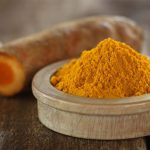
Healing superfoods: 4 Natural remedies for aches and pains
By Zoey Sky
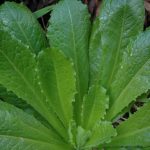
Foraging 101: How to identify, harvest and prepare wild lettuce
By Zoey Sky
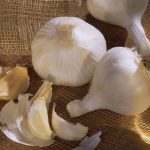
Home remedies for preppers: 5 Medicinal plants for wound healing
By Zoey Sky
COPYRIGHT © 2017 NATURAL NEWS HERBS


